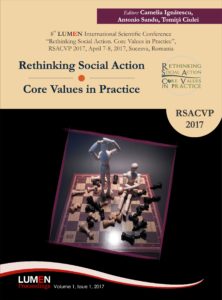Truth and Error in the Dispute between Hobbes and Descartes on Meditations on First Philosophy
Truth and Error in the Dispute between Hobbes and Descartes on Meditations on First Philosophy
Author(s): Marius Dumitrescu
Subject(s): Philosophy
Published by: Editura Lumen, Asociatia Lumen
Keywords: truth, error; Hobbes; ego; action.
Summary/Abstract: When Thomas Hobbes commented on Descartes’ Meditations on first philosophy in 1641, he was in his mature age, and the theoretical directions of his own worldview were probably already fully engaged. In this paper, I argue that Hobbesian objections to Descartes’ Meditations reveal the philosophical thoughts of the English thinker. What seems to bind both thinkers is the idea of ego seen as a principle. But an essential difference could be traced between the two philosophical visions. For Descartes, the ego is a theoretical principle, a metaphysical one, while Hobbes thinks to it in an instrumental way, in terms of human action on which it is based. Hobbes’ egoism is radical because the self is the only instance that determines and justifies the action. For Hobbes, an error couldn’t be the result of limitations of the cognitive faculties as Descartes understood it, but rather the result of a failure in the action plan. In the English philosopher’s thinking, the passions of the ego reflects the engine of human fulfillment and the sign of a strong mind, able to engage in real life and to assume a destiny. So, any action that leads to a victory is an obvious sign of her successful validation. A failed action signifies the existence of a false idea behind it, and this false idea is consider to be the result of weak passions that are inadequate to reality. By reading the Meditations, Hobbes defined his own thinking that could no longer accept the Cartesian dualism and replaced it with a new monistic philosophy in which he gave reality only to the sensitive world. The truth became an issue more related to a practical approach than to one with a contemplative, theoretical facet. The classical dispute between Descartes and Hobbes on one of the central subjects in philosophy which is truth can be interpreted as an incipient form, avant la lettre, of a philosophical Brexit by which nominalistic Anglo-Saxon thinking defined its originality and independence in relation to the continental philosophy dominated by Thomism and Cartesianism.
Book: Rethinking Social Action. Core Values in Practice
- Page Range: 220-229
- Page Count: 10
- Publication Year: 2017
- Language: English
- Content File-PDF

